 No matter where you live, you have probably heard people talking about the importance of conserving our power and electricity supply. If we turn off the lights when we leave a room, we will cut down on our power use, which will save us money on a power bill. The thing is; power comes in other forms. Not just wires that run into our home. With technology being what it is; we also use a lot of battery power and we should also learn how to conserve our environment through careful battery use.
No matter where you live, you have probably heard people talking about the importance of conserving our power and electricity supply. If we turn off the lights when we leave a room, we will cut down on our power use, which will save us money on a power bill. The thing is; power comes in other forms. Not just wires that run into our home. With technology being what it is; we also use a lot of battery power and we should also learn how to conserve our environment through careful battery use.
Using Batteries Wisely
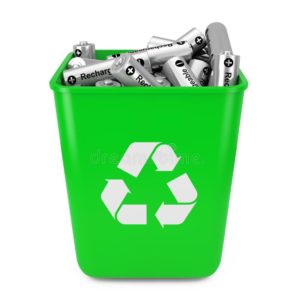 Every power tool, laptop, smart phone, portable radio, and more all have one thing in common. They need power. There are some devices, especially tools, that can be wired to run on power, but most all of them use batteries as well. To ensure that those items continue to work properly, we must keep batteries in them. However, it is a simple fact that we have all accepted; batteries go dead. Smart phone batteries go dead and may eventually not hold a sufficient charge. Car batteries, marine batteries, and all other batteries are the same way. There are things you can do to prolong or shorten the life of any battery. For instance, instead of leaving your laptop plugged in all the time; take it off charge and allow the battery to drain fully before you recharge. This same technique works for all rechargeable batteries.
Every power tool, laptop, smart phone, portable radio, and more all have one thing in common. They need power. There are some devices, especially tools, that can be wired to run on power, but most all of them use batteries as well. To ensure that those items continue to work properly, we must keep batteries in them. However, it is a simple fact that we have all accepted; batteries go dead. Smart phone batteries go dead and may eventually not hold a sufficient charge. Car batteries, marine batteries, and all other batteries are the same way. There are things you can do to prolong or shorten the life of any battery. For instance, instead of leaving your laptop plugged in all the time; take it off charge and allow the battery to drain fully before you recharge. This same technique works for all rechargeable batteries.
The Batteries We Love
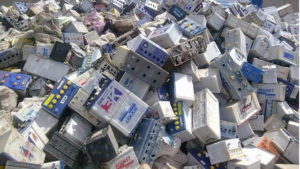 If you look in our landfills, one of the biggest issues is batteries filling them up. Large batteries, like those that we use in our vehicles and our boats are even bigger problems than the tiny “AA” batteries or those that we use in our phones. They not only take up more space, but they are filled with toxins that can cause damage to our environment in a big way. Therefore, it is important that you learn how to properly dispose of used batteries when you are done using them. In fact, in some states, it is illegal if you do not dispose of sealed lead acid batteries properly. Therefore, you will want to do what you can to protect the batteries. You can keep marine batteries that are not being used up off the floor in your garage and always keep them in a battery box when in your boat. You can check out this guide on battery boxes on http://www.stainlessmarine.com/group-24-battery-box-group-27-battery-box-performance-marine-parts-stainless-marine/ if you want more information. Then, when it is time to throw it away, you will want to check your state’s regulations to see how to get rid of it. You should do this for all batteries except alkaline batteries.
If you look in our landfills, one of the biggest issues is batteries filling them up. Large batteries, like those that we use in our vehicles and our boats are even bigger problems than the tiny “AA” batteries or those that we use in our phones. They not only take up more space, but they are filled with toxins that can cause damage to our environment in a big way. Therefore, it is important that you learn how to properly dispose of used batteries when you are done using them. In fact, in some states, it is illegal if you do not dispose of sealed lead acid batteries properly. Therefore, you will want to do what you can to protect the batteries. You can keep marine batteries that are not being used up off the floor in your garage and always keep them in a battery box when in your boat. You can check out this guide on battery boxes on http://www.stainlessmarine.com/group-24-battery-box-group-27-battery-box-performance-marine-parts-stainless-marine/ if you want more information. Then, when it is time to throw it away, you will want to check your state’s regulations to see how to get rid of it. You should do this for all batteries except alkaline batteries.
Do Your Part to Conserve!
We are never going to stop using batteries and other power sources. They are too much a part of our day-to-day life. Knowing how to use batteries efficiently so that you do not have to throw them away as often will help us all to conserve our environment for future generations and save us a lot of money now as well.
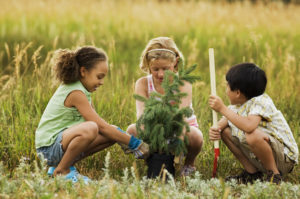 Every day you look at your home computer, there is a good chance that you will see something about the importance of conservation. There are different conservation efforts out there, and although not everyone pays as much attention as they should, there are a lot of us out there that want to take it one step further. There are people in this world that go way beyond recycling to ensure that they are taking part in the conservation of our natural resources. They get so involved with it that they use conservation as a family event, and the whole world benefits from it.
Every day you look at your home computer, there is a good chance that you will see something about the importance of conservation. There are different conservation efforts out there, and although not everyone pays as much attention as they should, there are a lot of us out there that want to take it one step further. There are people in this world that go way beyond recycling to ensure that they are taking part in the conservation of our natural resources. They get so involved with it that they use conservation as a family event, and the whole world benefits from it.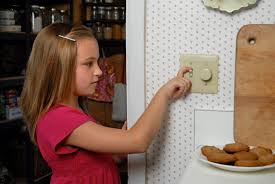 Conservation efforts require people to take notice of the problems that our world is facing. It takes more than just a few people to make a real impact and for that reason, you must realize that conservation efforts are only as good as the people who are willing to participate in them. The more people involved, the better and more impactful every single person’s effort will become. We have to start today to conserve what we can for our children when they are old enough to have children, but to ensure that our great grandkids have what they need; we must also teach our children the importance of it. This means you have to make sure to involve your kids in it, no matter how big or small they are today.
Conservation efforts require people to take notice of the problems that our world is facing. It takes more than just a few people to make a real impact and for that reason, you must realize that conservation efforts are only as good as the people who are willing to participate in them. The more people involved, the better and more impactful every single person’s effort will become. We have to start today to conserve what we can for our children when they are old enough to have children, but to ensure that our great grandkids have what they need; we must also teach our children the importance of it. This means you have to make sure to involve your kids in it, no matter how big or small they are today. Kids are magnets. They seek knowledge and understanding of the world around them. This makes it easy to talk to them about doing the right things for Mother Earth. Encourage your kids to recycle, donate old toys that they do not play with so that they do not fill up the landfills, and teach them early in life to turn off lights and water when they are not using them. Beyond that, you can take your kids to the park and encourage them to clean up around the lake while teaching them the importance of not littering. Have your child help you plant trees, grow a garden, and do other things that will enable them to use what nature has provided, without chemicals to help those things grow. It will help if you have young children. Even toddlers can get in on the bonding experience that it will provide to your family. It can start as soon as they are able to be carried in a baby carrier for toddlers. The
Kids are magnets. They seek knowledge and understanding of the world around them. This makes it easy to talk to them about doing the right things for Mother Earth. Encourage your kids to recycle, donate old toys that they do not play with so that they do not fill up the landfills, and teach them early in life to turn off lights and water when they are not using them. Beyond that, you can take your kids to the park and encourage them to clean up around the lake while teaching them the importance of not littering. Have your child help you plant trees, grow a garden, and do other things that will enable them to use what nature has provided, without chemicals to help those things grow. It will help if you have young children. Even toddlers can get in on the bonding experience that it will provide to your family. It can start as soon as they are able to be carried in a baby carrier for toddlers. The  We all seem to have a fondness for our lawn. There are a lot of things that we can do in the yard. Barbecues and kids running around playing in sprinklers. It is a place that we can decorate with yard ornaments and various plants or shrubbery. We can relax in it and take care of it, reaping the reward of having a carpet under bare feet when outside. For this reason, many people are putting a lot of effort into protecting their lawns and ensuring that its
We all seem to have a fondness for our lawn. There are a lot of things that we can do in the yard. Barbecues and kids running around playing in sprinklers. It is a place that we can decorate with yard ornaments and various plants or shrubbery. We can relax in it and take care of it, reaping the reward of having a carpet under bare feet when outside. For this reason, many people are putting a lot of effort into protecting their lawns and ensuring that its  Chemicals cause damage to the soil, water that it may “wash” into, and more. It also has the ability to make people, pets, and wildlife sick. Is there a better way to handle keeping the grass green without those other chemicals? The answer is, “Yes”. Many people are choosing to go green with their lawn care. They choose grasses that promise to flourish in their part of the world, watering less often, but ensuring that the water has a chance to seep deeply into the ground, and avoiding chemical fertilizers and pesticides. Composting and using it as fertilizer for your lawn will add nutrients to the soil and keep your grass green. You can use natural pesticides on your lawn. There are even some natural pesticides that use food grade materials to ensure that they are safe, but effective at removing the few insect types that damage a lawn. There are many people who also aerate their lawn to ensure it is not too tightly packed to be healthy. In shady areas, you may consider planting
Chemicals cause damage to the soil, water that it may “wash” into, and more. It also has the ability to make people, pets, and wildlife sick. Is there a better way to handle keeping the grass green without those other chemicals? The answer is, “Yes”. Many people are choosing to go green with their lawn care. They choose grasses that promise to flourish in their part of the world, watering less often, but ensuring that the water has a chance to seep deeply into the ground, and avoiding chemical fertilizers and pesticides. Composting and using it as fertilizer for your lawn will add nutrients to the soil and keep your grass green. You can use natural pesticides on your lawn. There are even some natural pesticides that use food grade materials to ensure that they are safe, but effective at removing the few insect types that damage a lawn. There are many people who also aerate their lawn to ensure it is not too tightly packed to be healthy. In shady areas, you may consider planting 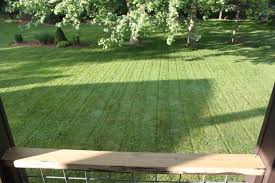 How much money do you spend each year on fertilizers and pest control chemicals that barely work? If you multiply that by everyone in your neighborhood or your community, the dollar amounts soon become unreal. Then you have to look at how much damage all those chemicals are doing to the soil quality and the water quality in your area. Is it worth it when there are other,
How much money do you spend each year on fertilizers and pest control chemicals that barely work? If you multiply that by everyone in your neighborhood or your community, the dollar amounts soon become unreal. Then you have to look at how much damage all those chemicals are doing to the soil quality and the water quality in your area. Is it worth it when there are other,  We have all seen the commercials on television about countries that do not have enough food to survive in their area of the world. We may look away from the television or we may watch it wondering why they do not grow more food for themselves, but the facts remain the same. Then you have others who spend their day eating some of the food that they have available. They throw away the rest. In an average day, how much food do you feel your family wastes? Why do we waste it? Does it go bad before you eat it, or do you simply find that you do not want it? Either way, food conservation is the area we fall short in when conserving. It alone requires the single biggest effort for us all.
We have all seen the commercials on television about countries that do not have enough food to survive in their area of the world. We may look away from the television or we may watch it wondering why they do not grow more food for themselves, but the facts remain the same. Then you have others who spend their day eating some of the food that they have available. They throw away the rest. In an average day, how much food do you feel your family wastes? Why do we waste it? Does it go bad before you eat it, or do you simply find that you do not want it? Either way, food conservation is the area we fall short in when conserving. It alone requires the single biggest effort for us all. Think about a restaurant that closes its doors in the evening hours. When they close their door, the food that they have left gets inventoried and tossed out. During the day, that same restaurant may have to toss out several burgers and fries because they prepare the food and then its shelf life ends before someone buys it. Grocery stores are the same way. They put foods out and then it may spoil before someone chooses to buy it. They also have to keep up with “sell-by” dates and anything that has reached its max shelf life, even though it may be perfectly good, has to be tossed out. In our own homes, we may buy a bunch of bananas thinking we will eat them, but then throw them out because they get too ripe. Life also takes us by surprise sometimes and the meats or salads that we put in the fridge go bad before we eat them. Most of the time, we think only of the money that we wasted by buying something we had to throw away. What we should be doing is trying to think of ways to avoid throwing those food items away.
Think about a restaurant that closes its doors in the evening hours. When they close their door, the food that they have left gets inventoried and tossed out. During the day, that same restaurant may have to toss out several burgers and fries because they prepare the food and then its shelf life ends before someone buys it. Grocery stores are the same way. They put foods out and then it may spoil before someone chooses to buy it. They also have to keep up with “sell-by” dates and anything that has reached its max shelf life, even though it may be perfectly good, has to be tossed out. In our own homes, we may buy a bunch of bananas thinking we will eat them, but then throw them out because they get too ripe. Life also takes us by surprise sometimes and the meats or salads that we put in the fridge go bad before we eat them. Most of the time, we think only of the money that we wasted by buying something we had to throw away. What we should be doing is trying to think of ways to avoid throwing those food items away. According to some statistics, Americans alone waste approximately 134 billion pounds of food each year. A lot of this food is usable, but unwanted. Most of the time, it is because we live by the “Best By” dates, even though food can usually be edible for long after it is past this date. One great example of this is
According to some statistics, Americans alone waste approximately 134 billion pounds of food each year. A lot of this food is usable, but unwanted. Most of the time, it is because we live by the “Best By” dates, even though food can usually be edible for long after it is past this date. One great example of this is